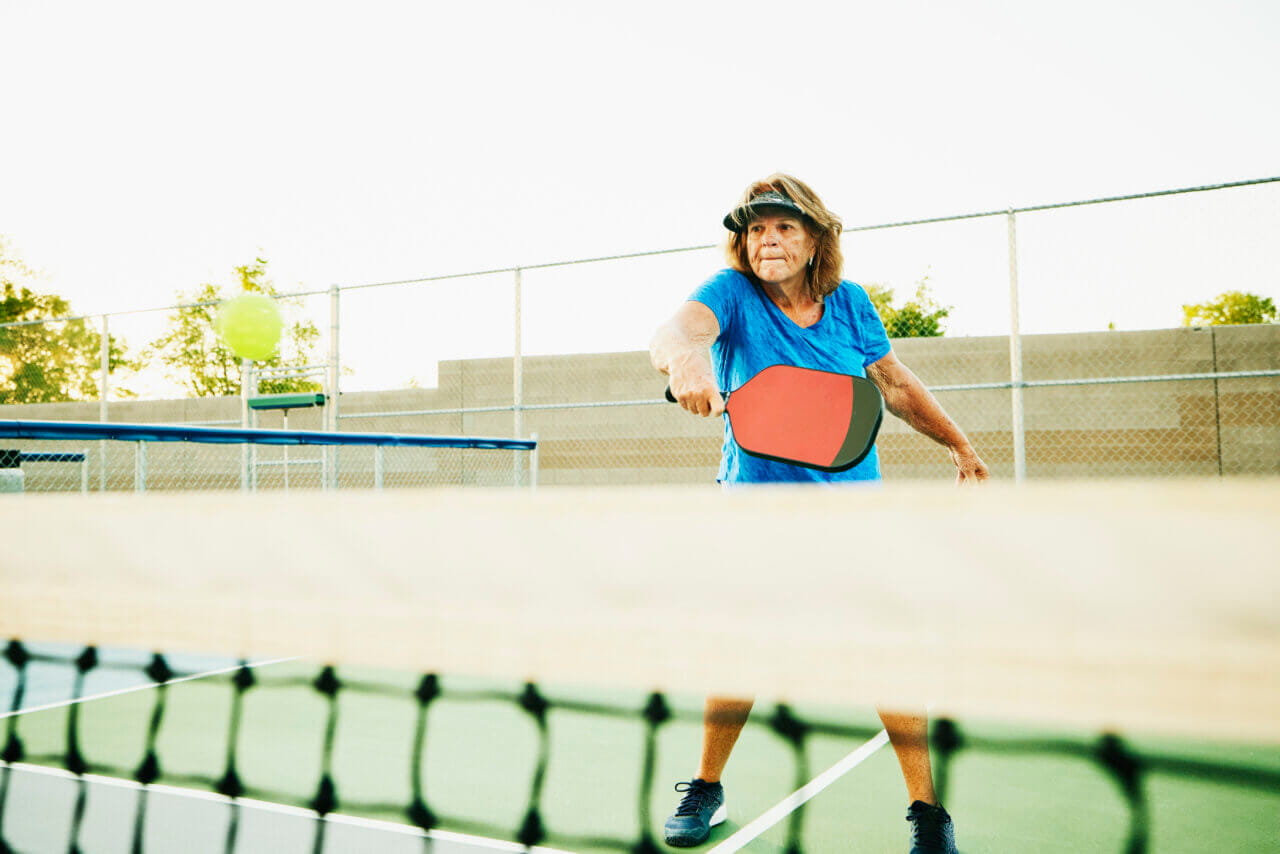Managing Chronic Conditions While Staying Active in Pickleball
.jpg?rev=9d6ebeca40744d138c1537d92cebca51)
An active lifestyle is essential for everyone, and it can be especially beneficial for those with chronic conditions like diabetes, heart disease, asthma and arthritis. Increasingly, people are finding pickleball an excellent option for getting a good workout and enjoying some social time with friends.
This article focuses on how to manage chronic conditions while participating in this fun, fulfilling sport.
Understanding the Challenges of Exercising With Medical Issues
Pickleball can be safe and beneficial for people with chronic medical issues. However, it’s essential to understand how your condition affects your physical abilities. Some examples of health challenges and their impact on pickleball participation include:
- Diabetes. Exercise can amplify blood sugar fluctuations. To avoid problems, people with diabetes should check their blood glucose before, during and after pickleball matches and take action to adjust it if needed.
- Heart disease. People with heart conditions must be mindful of their effort levels and heart rate, as overexertion can strain the cardiovascular system.
- Asthma. Vigorous activity can trigger bronchoconstriction and breathing problems. People with asthma also need to be aware of other factors like cold temperatures and allergens in the air.
- Arthritis. People with arthritis should be aware that joint stiffness and pain can affect mobility and impact performance on the pickleball court.
7 Tips for Maximizing the Health Benefits and Fun of Pickleball
Having a chronic health condition doesn’t mean you can’t enjoy the physical and mental health benefits of being part of the pickleball community. You can play safely by following these seven tips:
- Talk with your healthcare provider. Before diving into pickleball or any exercise regimen, it’s essential to consult your provider. They can assess your condition and provide personalized recommendations for addressing it while getting the most from the game.
- Follow your medication regimen. Whether it’s having an asthma rescue inhaler handy at the pickleball court, using insulin as needed or taking your heart medication as directed, you’ve got to stay on top of your condition.
- Warm up and cool down. Stretching and getting some light exercise to elevate your heart and breathing rates a bit before a pickleball match prepares your body for the workout ahead. Stretching after helps your body shift to recovery mode and can minimize sore muscles.
- Eat well and hydrate. Having a balanced diet and drinking plenty of water to prevent dehydration is important for pickleball players in general and those with chronic conditions in particular. People with diabetes should also have snacks available to prevent hypoglycemia.
- Pay attention to environmental conditions. It’s important to understand how temperature, humidity, airborne allergen levels and other factors affect you and time your play accordingly. For example, warmer temperatures can help loosen stiff joints in those with arthritis, and airborne allergen levels tend to be higher in the morning, making that a less appealing time for people with asthma to play pickleball.
- Seek social support. Playing with people who know about your chronic condition and are happy to make accommodations (taking rest breaks, playing at a particular time of day, etc.) is helpful.
- Listen to your body. If your chronic condition flares up during a match, don’t try to “play through” the symptoms. Remember that your health is your top priority, and take the appropriate actions to address the issue.
Don’t Let Your Chronic Condition Keep You off the Pickleball Court
By working with your healthcare provider and taking the appropriate precautions, you can make pickleball part of your fitness routine and enjoy its many physical and mental health benefits.
Need to find a Baptist Health provider? Our online directory is a helpful resource.
Next Steps and Helpful Resources
Learn More About Disease Management at Baptist Health
Common Pickleball Injuries and Prevention Strategies
Benefits of Pickleball for Cardiovascular Health
Warm-Up and Cool-Down Routines for Pickleball Players


